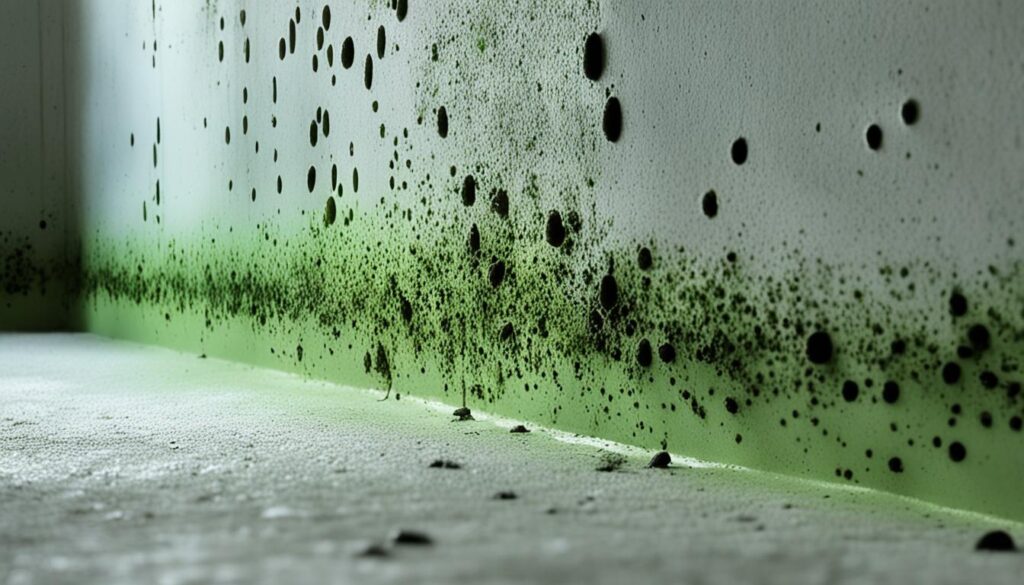
Mold Side Effects Florida: Health Risks Unveiled
Living in Florida comes with its fair share of wonderful experiences, from sunny weather to beautiful beaches. However, there is a hidden danger lurking in many Florida homes and buildings – mold. While often unseen, mold can have severe health implications for residents. Understanding the potential health risks associated with mold side effects is crucial for maintaining a safe and healthy environment.
Mold spores are microscopic airborne particles that can cause allergies and respiratory concerns in individuals. When mold grows and spreads within indoor spaces, it releases these spores into the air, creating a hazardous environment. In Florida’s humid climate, where moisture levels are often high, the risk of mold growth increases significantly.
Allergies are among the most common health effects of mold exposure. Mold spores can trigger allergic reactions, leading to symptoms such as sneezing, watery eyes, and skin rashes. For individuals with pre-existing respiratory conditions, such as asthma or chronic bronchitis, exposure to mold can exacerbate these conditions, causing severe breathing difficulties and worsening symptoms.
Key Takeaways:
- Mold in Florida can pose significant health risks.
- Mold spores can trigger allergies and worsen respiratory conditions.
- Common symptoms of mold exposure include sneezing, watery eyes, and coughing.
- Mold prevention and remediation are essential for a mold-free environment.
- Seek professional assistance from Fix Mold Miami for mold assessments, prevention, and remediation services in Florida.
The Connection Between Mold and Health Issues
In this section, we will explore the direct link between mold exposure and various health issues. It is important to understand how mold can impact our well-being and contribute to mold-related health problems.
Mold spores in the air can have detrimental effects on our respiratory system, especially for individuals who are allergic to mold or have pre-existing respiratory conditions. When mold spores are inhaled, they can trigger allergic reactions, such as sneezing, coughing, and watery eyes. These symptoms are often similar to seasonal allergies but can persist or worsen due to continuous exposure to mold.
Prolonged exposure to mold also has the potential to cause more serious health concerns. Individuals with asthma or other respiratory conditions may experience exacerbation of their symptoms, leading to increased coughing, wheezing, and shortness of breath. Additionally, mold exposure has been linked to respiratory infections, sinusitis, and even lung inflammation in certain cases. It is crucial to address mold issues promptly to minimize the risks associated with these health problems.

While the immediate health effects of mold exposure are problematic, the long-term consequences can be even more concerning. Prolonged exposure to mold has been associated with chronic respiratory conditions, such as asthma and chronic obstructive pulmonary disease (COPD). It can also increase the risk of developing respiratory infections and allergies over time. Furthermore, some studies have suggested a potential link between mold exposure and neurological symptoms, though further research is needed to establish a definitive connection.
Overall, the connection between mold and health issues cannot be ignored. Whether it’s mild allergies or more severe respiratory concerns, mold-related health problems can have a significant impact on our well-being. In the next section, we will discuss how to recognize the symptoms of mold exposure, allowing for early detection and appropriate actions to be taken.
Recognizing Mold Symptoms in Florida
It is crucial for Florida residents to be able to recognize the common symptoms of mold exposure. When mold is present in your environment, it can lead to a range of health issues that should not be ignored. By understanding the signs of mold exposure, you can take proactive steps to protect yourself and your loved ones.
Allergic Reactions:
- Sneezing
- Watery or itchy eyes
- Nasal congestion or runny nose
- Itchy throat or cough
- Skin irritation or rash
Respiratory Symptoms:
- Coughing
- Wheezing
- Shortness of breath
- Chest tightness
- Difficulty breathing
If you experience any of these symptoms and suspect mold exposure, it is essential to take prompt action. Mold is known to worsen respiratory conditions such as asthma or chronic obstructive pulmonary disease (COPD). It can also lead to the development of mold-related illnesses that may require medical attention.
Seeking Medical Advice:
If your symptoms persist or worsen, it is crucial to consult a healthcare professional. A medical evaluation can help determine if your symptoms are indeed related to mold exposure and guide you towards appropriate treatment options.
“If you experience persistent symptoms or suspect mold exposure, don’t hesitate to seek medical advice. Your health is paramount, and early detection can prevent further complications.”
Remember, mold exposure can be harmful, especially for individuals with weakened immune systems, allergies, or respiratory conditions. Taking the necessary steps to recognize and address mold symptoms is essential for your overall well-being.

| Symptom | Description |
|---|---|
| Sneezing | Repetitive, involuntary expulsion of air through the nose and mouth |
| Watery or itchy eyes | Excessive tear production or irritation in the eyes |
| Nasal congestion or runny nose | Blockage or excessive mucus in the nasal passages |
| Itchy throat or cough | Tickling or irritation in the throat leading to a cough |
| Skin irritation or rash | Redness, itching, or inflammation of the skin |
| Coughing | Expelling air forcefully from the lungs to clear the airways |
| Wheezing | Whistling or rattling sound when breathing, caused by narrowed airways |
| Shortness of breath | Difficulty breathing or feeling breathless |
| Chest tightness | Pressure or discomfort in the chest |
| Difficulty breathing | Labored or strenuous breathing |
Prevention and Remediation of Mold in Florida
One of the most crucial steps in ensuring a healthy living environment in Florida is mold prevention. Protecting your home or workplace from mold growth can help prevent potential health issues and the need for extensive remediation later on. Here are some expert tips to keep your space mold-free.
Firstly, it is important to control moisture levels. Florida’s humid climate provides a favorable breeding ground for mold. Regularly inspect and repair any water leaks, be it from roofs, pipes, or appliances. Ensure proper ventilation in bathrooms, kitchens, and other high-humidity areas to discourage mold growth.
Secondly, maintaining proper indoor air quality is essential. Use air purifiers or dehumidifiers to minimize excess moisture in the air. Properly ventilate your space by opening windows to allow fresh air to circulate. Additionally, regularly clean and maintain HVAC systems to prevent mold spores from spreading throughout the building.
When it comes to remediation, it is crucial to enlist the services of professionals specializing in mold assessments and remediation. Fix Mold Miami, Florida’s Highest Rated In Mold Assessments, Prevention, and Remediation, offers comprehensive solutions to address mold issues. Their team of experts employs state-of-the-art techniques to identify and eliminate mold growth, ensuring a safe and mold-free environment.




